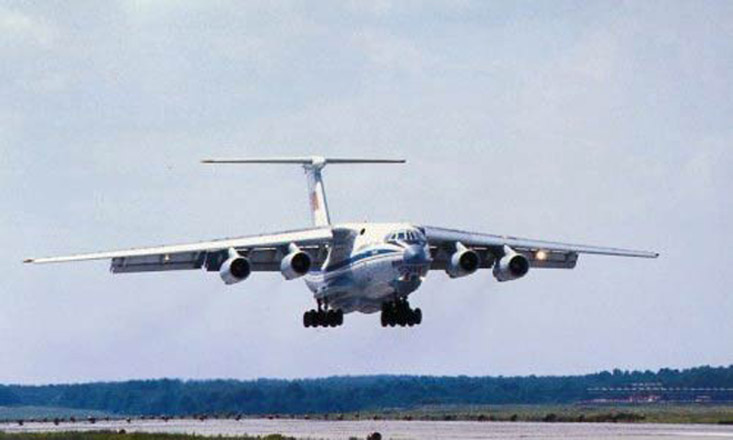Azerbaijan, Baku, July 8 /Trend, T.Konyayeva/
The ban on flights of Iranian planes in European airspace is linked with security problems, but this decision may be politically motivated, experts say.
"The decision by the European Union to exclude certain Iranian aircrafts from its airspace could be defended on safety grounds, a professor at U.S. Northeastern University Kamran Dadkhah wrote in an e-mail to Trend. - Nevertheless, the timing of this decision-coming on the wake of the sanctions imposed by the UN Security Council, and by the United States and its allies-gives credence to the argument that indeed it is, at least partially, a political decision".
Earlier this week, the EU Aviation Security Committee banned flights of two-thirds of the airliners of Iran Air Company in the airspace of the European Union.
Part of the Iran Air aircrafts was included by aviation authorities of the EU in the so-called "black list" of unreliable already in March of this year. The current ban was referred to all planes of the airliner - Airbus-320, Boeing-727 and Boeing-727.
According to Dadkhah, it is important to review the background of this decision. Since the time of the hostage crisis, the United States has prohibited the sale of American made aircrafts and aircrafts using American made parts as well as their spare parts to Iran.
The diplomatic crisis between Iran and the U.S. began November 4, 1979, when a group of students - active supporters of the Islamic Revolution in Iran - seized the U.S. embassy in Tehran. The diplomats, their families and embassy personnel were taken hostage. 53 Americans were kept for 444 days - until 20 January 1981.
Before the Islamic revolution, Iranian commercial air fleet consisted of Boeing produced in the U.S. and French Airbus.
"This has resulted in Iranian aviation companies to fly an ageing fleet of aircrafts; even these aircrafts are not properly serviced due to the shortage of spare parts; Iran is forced to buy second hand American made aircrafts from other countries; and Iran has bought unreliable Soviet era aircrafts such as Tupolov from Russia. The upshot is that Iranian aviation has had a poor safety record and one of the highest fatality rates in the world," the expert said.
Rouzbeh Parsi, an analyst at the EU Institute for Security Studies (EUISS) in Paris, believes that the ban is more indirectly linked to sanctions or political motivation.
"The Iranian aircrafts are degrading in quality and is an argument for that air safety is an issue whether the issue has reached the level that would justify a ban. At this moment I have no idea. That would require technical investigation," Parsi, European expert on Iranian policy, told Trend in a telephone conversation.
American expert Paul Sullivan believes that the decision probably has political motives.
"The recent sanctions could worsen the situation, Sullivan, professor at the U.S. National Security University, told Trend by e-mail. - How it happened, for example, with Libya, where the worst consequence of the most stringent UN sanctions against it was serious problems with the aircraft."
June 9 the UN Security Council voted for adopting a new resolution, which envisages tougher sanctions against Tehran in connection with its refusal to give up its uranium enrichment activities.
This is the fourth resolution adopted by the UN Security Council for Tehran's refusal to comply with international requirements concerning the clarification of several issues to the world community over the Iranian nuclear program, including the existence of its military component.
According to Dadkhah, the ban will cut into international travel by Iranians because most will have to use foreign airlines and pay a higher airfare.
"Iranian airline industry was already in trouble. This decision, if enforced, will cut down its operation even further," he said.
Parsi believes that there are basically only two different ways that can come out: European Airliners will have more business in flying people to and from Iran, or that Iranian reciprocates will say that European Airliners will also be restricted in their ability to fly to and from Iran.
"But that would hold the flow of passengers in both directions. And don't see who is going to gain from that," he said.
Parsi thinks that to some of degree it might add to the isolation of the country, but most probably, if the European business is interested, they will compensate for the lack of Iranian Airline ability to fly people.
"But it is as much a political decision as an economic in the sense that they will have to navigate the new restrictions on commercial ties to Iran that the European and American sanctions entail," he said.
With regards to the price of aviation gasoline, all experts agree that the embargo would not substantially affect its cost.
"I doubt that it will have any appreciable effect. First, the share of Iranian airlines in total air travel is quite small. Furthermore, a large number of Iranian passengers will switch to other international airlines. All in all, the effect on demand will be minimal," said Dadkhah.
Parsi does not think Iran Air and other Iran based airliners are that big part of flying economy that their marginalization on a market would affect the price of airline fuel.
The consumption of aviation fuel by Iran is so small on a global scale that "Iran can not even be a little speck on the screen of world prices", Sullivan said.
E.Ostapenko contributed to article






